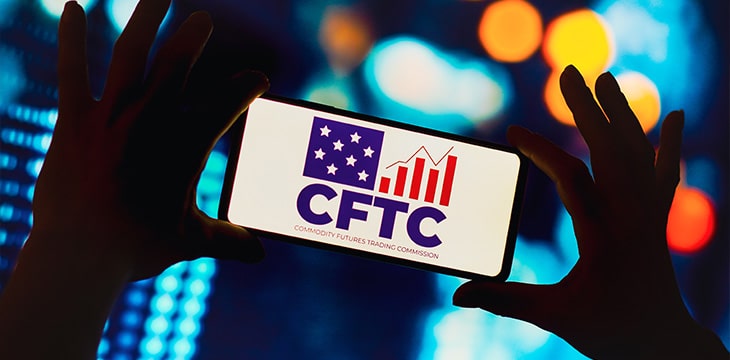|
Getting your Trinity Audio player ready...
|
DAOs are not immune from enforcement and may not violate the law with impunity. – CFTC complaint against Ooki DAO
In a move that surprised absolutely nobody who has been paying attention to what’s going on in the digital currency and blockchain industries in recent times, the Commodity Futures Trading Commission (CFTC) recently sued the founders of Ooki decentralized autonomous organization (DAO).
The CFTC accuses Ooki DAO of engaging in activities without proper registration and violating Know Your Customer (KYC)/due diligence requirements and regulations.
In this suit, Ooki DAO is listed as an unincorporated association. This essentially means that its token holders, who vote on the protocol with governance tokens, are operating the legal equivalent of a business.
However, unlike operating an actual business, such as an LLC, running a DAO offers no legal protections such as limited liability. This leaves token holders liable for legal violations and potential financial losses.
The move could publicly destroy the widespread delusion within the industry that the so-called “decentralization” of these systems offers legal immunity.
Decentralization offers no legal protection
The truth is that “decentralization” is largely a myth promoted by anarchists who have also seen blockchains and digital currencies as a way to evade the law.
Just recently, Ethereum’s founder Vitalik Buterin was said to be furious at the idea Ethereum validators might comply with OFAC sanctions, suggesting that validators who do should have their ETH stakes burned.
His rainbow shawl twitched violently as he considered the implications of the validators ignoring his commands. Until today his voice had been the law that controlled the code. ‘Witches’ he screeched, his voice breaking high with the effort. ‘Burn their stakes! All of them!!!’… https://t.co/Jf0WpuWh8R pic.twitter.com/2n4WbwPzAd
— Brendan Lee (@Brendan_Lee__) August 22, 2022
If the CFTC is successful in its action against Ooki DAO, this could leave token holders of all kinds, including those involved in governing DAOs, in a precarious position. On the one hand, they could risk having their stakes burned by “the community” should they choose to comply with legal orders, and on the other hand, they would be legally liable if they did not comply.
In truth, decentralization has never offered legal immunity. This is one of the many pervasive myths that deluded many in the digital currency space. Bitcoin’s inventor warned about this years ago, and we’re coming to see his predictions come true in the long run.
Blockchain must comply with laws to reach its full potential
While Bitcoin and other blockchains have been hijacked and misrepresented by those who either did not understand them or wished to use them for nefarious purposes, lawsuits like the CFTC action against Ooki DAO should go some way to clearing things up.
Truthfully, it will be a good thing when this critical legal point is demonstrated irrevocably. When legal precedent is set, those who have painted Bitcoin as a tool for criminals and subversion will have one less vector through which they can attack it. Furthermore, corporations, governments, and other vital players will begin to understand the bigger picture of Bitcoin’s potential.
What is that potential? Greater economic efficiency, time-stamped records of financial and data transactions (traceability) leading to less fraud, micropayments, and entire new industries opening up because of these elements. That’s the sort of world I and many others in the industry would like to see; not one where terrorists, criminals, and dark forces of all kinds can break the law with impunity.
If Bitcoin and blockchain technology, in general, are ever going to reach their potential as world-transforming tech, it needs to be clearly demonstrated that existing laws apply and can be enforced. The Ooki DAO token holders being held legally accountable for violating several United States laws and regulations is a good start in that direction.
Key takeaways from this article
- The CFTC has taken legal action against the Ooki DAO.
- The CFTC says Ooki DAO is an unincorporated association consisting of the DAO’s governance token holders.
- The CFTC says the token holders are liable for several legal and regulatory breaches that occurred.
- This has the potential to lay bare the myth of decentralization that pervades the industry, showing once and for all that token holders are not immune from the law.
- All of this was predicted years ago by Bitcoin’s inventor, Dr. Craig Wright.
Watch: The BSV Global Blockchain Convention panel, Law & Order: Regulatory Compliance for Blockchain & Digital Assets

 02-20-2026
02-20-2026 




